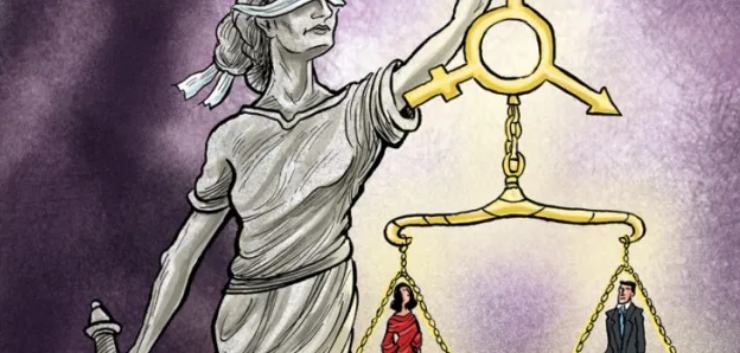Gambiaj.com – (Banjul, The Gambia) – In a historic move, The Gambia’s National Assembly has passed the Criminal Offence and Procedure Bill 2025, marking a major overhaul of the country’s criminal justice system. The newly enacted laws, which replace colonial-era legislation that had been in place for over 80 years, have been hailed as a step toward modernization but have also sparked concerns over potential restrictions on free speech.
The Criminal Offences Bill 2020 and the Criminal Procedure Bill 2020, now collectively referred to as the Criminal Offence and Procedure Bill 2025, introduce sweeping changes aimed at aligning The Gambia’s legal framework with international standards.
One of the most notable aspects of the reforms is the repeal of outdated and repressive laws, including criminal defamation and sedition, which had historically been used to suppress press freedom and silence dissent. This has been widely welcomed, particularly by journalists and civil society groups who had long called for their removal.
“The repeal of these provisions is crucial in protecting press freedom and free speech,” said Modou Joof of the Gambia Press Union (GPU), referring to a 2023 position paper that warned against laws that could lead to self-censorship among journalists.
The reforms also expand the jurisdiction of Gambian courts, enabling them to prosecute individuals who commit crimes abroad and later enter the country. This is seen as a significant step toward strengthening The Gambia’s legal reach in an increasingly interconnected world.
Meanwhile, the Criminal Procedure Bill introduces major procedural updates, including provisions for probation, parole, and plea agreements, as well as enhanced protections for victims and witnesses. The legislation also seeks to ensure a right to a fair and speedy trial, addressing long-standing concerns over judicial delays.
Concerns Over Free Speech and Political Repression
Despite these progressive elements, certain provisions in the new laws have drawn criticism, particularly regarding increased penalties for sedition and hate speech. While government officials argue that these changes are necessary to safeguard national security and combat incitement to violence, critics warn that they could be misused to stifle political opposition.
A new provision criminalizing hate speech—defined as speech promoting violence or discrimination based on race, religion, ethnicity, or sexual orientation—introduces penalties of up to five years’ imprisonment. While proponents argue this is essential in preventing communal tensions, others fear it could be exploited to suppress dissent.
“There is a fine line between tackling hate speech and curtailing legitimate political expression,” said a civil rights activist who preferred to remain anonymous.
Similarly, harsher penalties for incitement to sedition, disobedience of lawful orders, and taking unlawful oaths to commit capital offenses have raised red flags. Critics argue that vague definitions of these crimes could lead to selective enforcement against opposition figures.
The passage of the reforms comes after years of debate. The original Criminal Offences Bill, introduced in 2020, was deferred following public outcry. The final version passed by Parliament includes some amendments but has failed to quell all concerns, particularly regarding free speech protections.
Dawda A. Jallow, The Gambia’s Minister of Justice, defended the legislation, calling it a “critical step toward aligning our laws with democratic values and international standards.”
However, human rights groups and journalists say they will closely monitor how these laws are implemented in practice. While the repeal of colonial-era restrictions on press freedom is a victory, the introduction of stringent new penalties raises questions about whether these reforms represent a true democratic leap forward—or a new avenue for state control.
With the Criminal Offence and Procedure Bill 2025 now enacted, all eyes will be on the government to see whether these changes truly modernize the justice system or merely replace one set of repressive laws with another.










